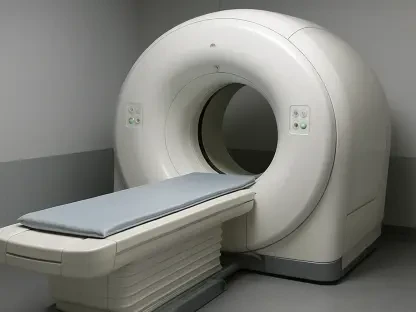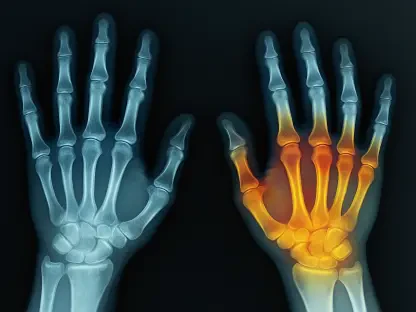The Yong Loo Lin School of Medicine at the National University of Singapore (NUS) plays a transformative role in global healthcare practices, driven by its significant research initiatives. The school’s research efforts are not peripheral activities but are central to its mission, significantly contributing to its international reputation and impact. With research grants surpassing $100 million annually from various sources, NUS Medicine is unwavering in its pursuit of groundbreaking research that influences healthcare on a global scale. The commitment to research excellence is evident in both the volume of scientific publications and the measurable improvements in patient care resulting from these studies.
Critical Contributions to Scientific Literature
A Robust Research Framework and Impactful Outputs
In 2024, NUS Medicine researchers demonstrated their exceptional dedication to advancing scientific understanding by publishing 3,865 research papers, each playing a vital role in expanding the boundaries of medical knowledge. These contributions have been widely acknowledged, as evidenced by the 21,829 times they have been cited. Such prolific output is reflective of a well-established research infrastructure comprising 220 laboratories spread across 10 translational research programs and 15 faculty research centers. These centers are led by experts recognized as leaders in their respective fields, ensuring that the research is at the forefront of medical innovation.
The school’s growing reputation is underscored by its ever-improving Field-Weighted Citation Impact score, which has surged from a global average of 1.04 in 2000 to 2.59 in 2024. This improvement places NUS Medicine in proximity to world-renowned institutions such as Oxford, Stanford, and Johns Hopkins. By benchmarking against such prestigious entities, NUS Medicine underscores its influence in the research community. Vice-dean Roger Foo remarks that the focus on impactful research has been instrumental in enhancing the school’s global standing.
Administrative Support and Collaborations
The effectiveness of NUS Medicine’s research endeavors is bolstered by an adept team of research administrators. Their expertise ensures the navigation through complex administrative processes, ultimately facilitating seamless research activities. This team plays an instrumental role in supporting researchers by managing funding applications, compliance, and collaborative agreements. Such administrative support encourages cross-institutional partnerships, fostering an environment where innovative ideas can flourish. It is noted that collaboration, both within and outside Singapore, further strengthens NUS Medicine’s research capabilities, promoting diverse intellectual input and shared resources.
Additionally, the school emphasizes the need for strategic focus on projects that align with both national and global healthcare priorities. This approach ensures that research remains relevant and responsive to current challenges, such as an aging population. By steering research efforts towards such pressing issues, NUS Medicine is demonstrating adaptability and forward-thinking. This alignment with national health strategies not only enhances the practicality of research outcomes but also secures support from governmental bodies, further sustaining the institution’s research activities.
Advanced Medical Innovations
Pioneering Advances in Detection and Treatment
A significant example of NUS Medicine’s ability to translate research into practical healthcare solutions is the development of a molecular blood test for early gastric cancer detection. Introduced in 2019, this innovation addresses the high incidence rates of gastric cancer, especially prevalent in Asian populations. Spearheaded by a team of seasoned professionals from the National University Hospital, National University Cancer Institute, and NUS Medicine’s biochemistry department, this test exemplifies the impact of synergistic academic and clinical expertise. This breakthrough test catalyzed the foundation of Mirxes, a spin-off company that has achieved remarkable financial success, underscoring the commercial viability of academic research.
Similarly, the school has made significant strides in utilizing artificial intelligence to enhance patient care. Leveraging de-identified data from the National University Health System’s Electronic Medical Records, researchers have successfully identified inefficiencies and improved treatment protocols. The CardioSight-Horus platform exemplifies this effort, having identified 2,000 patients with untreated high cholesterol. Prompt interventions based on these insights are offering substantial improvements in patient outcomes, exemplifying the potential of AI-driven healthcare solutions.
Innovations in Preventive Healthcare
Another facet of NUS Medicine’s research is its focus on preventive healthcare solutions. An exemplary initiative is Project Reset, an ongoing effort to identify and mitigate heart disease risks through early interventions. Led by Professor Roger Foo, the research team conducts comprehensive assessments of cardiovascular health among participants, aiming to develop precise and personalized preventive strategies. This project signifies an important shift towards preventive rather than curative approaches in chronic disease management.
The GUSTO study, a longitudinal research project, further highlights the institution’s commitment to understanding and improving health outcomes. Initiated in 2009, it explores how prenatal and early childhood environments influence health later in life. This pioneering work has informed public health policies, such as enhanced screening for gestational diabetes, reflecting the tangible impact of longitudinal research. These initiatives underscore NUS Medicine’s role in addressing multifaceted health challenges through informed, research-driven approaches.
Strategic Focus and Research Funding Dynamics
Emphasis on National Health Priorities
NUS Medicine strategically aligns its research objectives with prevailing national health priorities and global trends, thereby ensuring that its work is both relevant and impactful. This emphasis on addressing key issues such as aging populations or emergent diseases positions the school as a pivotal player in responding to contemporary health challenges. By continuously updating its focus to reflect changes in the healthcare landscape, NUS Medicine remains agile and forward-thinking. This foresight and adaptability enhance its capacity to contribute meaningful solutions to the healthcare sector, both locally and globally.
The introduction of the National Medical Research Council’s Clinician Scientist Award in 2005 marked a significant milestone for NUS Medicine. This award facilitates a dual focus on research and clinical practice, allowing clinicians to contribute to scientific inquiry without compromising their medical duties. This dual role encourages a unique synergy where clinical experiences inform research initiatives, and vice versa, creating a feedback loop that ultimately enhances patient care and clinical methodologies.
Criteria for Securing Research Funding
Robust criteria guide the allocation of research funding within NUS Medicine, ensuring that only projects with significant potential are supported. Applications are rigorously evaluated based on the investigator’s track record, the project’s significance, and its alignment with national health strategies. While competition is intense, creativity and potential impact remain key determinants, highlighting a shift towards supporting innovative and visionary research proposals. This selective process not only elevates the quality of funded projects but also reinforces NUS Medicine’s reputation as a leader in medical research.
For emerging researchers, demonstrating a clear commitment to scientific inquiry and readiness to engage with the broader research community is crucial. This emphasis on nurturing talent enhances the school’s research environment, perpetuating a vibrant ecosystem where young researchers are encouraged to pursue novel ideas. By fostering a supportive yet challenging atmosphere, NUS Medicine ensures the continuous development of its research capabilities, further solidifying its status as a premier institution dedicated to advancing healthcare knowledge and practice.
Diverse Research and Global Collaboration
Innovative Breakthroughs and Their Impact
A wealth of pioneering research projects underscores the diversity and ingenuity of NUS Medicine’s research portfolio. Noteworthy among these is the development of CAR-T cell therapy under the leadership of Professor Dario Campana. This revolutionary treatment for T-cell acute lymphoblastic leukemia has demonstrated remarkable efficacy, achieving complete remission in 16 out of 17 treated patients. Such groundbreaking research highlights NUS Medicine’s capacity to produce transformative medical therapies, setting new standards in cancer treatment and offering hope for more personalized cancer care.
Another noteworthy project is HeatSafe, which addresses climate-induced heat stress impacts, particularly in the tropical Southeast Asian context. Led by thermal physiologist Jason Lee, this research is pioneering strategies to mitigate the health implications of increasing environmental temperatures. Insights from this project are poised to inform both public policy and individual health behaviors, enhancing community resilience to climate change. This line of inquiry speaks to NUS Medicine’s versatility, addressing not just disease-specific concerns but broader environmental health challenges.
Pioneering Initiatives in Sustainable Medicine
NUS Medicine is at the leading edge of incorporating sustainability into healthcare practices. An initiative under Professor Nick Watts focuses on reducing the healthcare sector’s environmental footprint, aiming to reconcile medical advancement with ecological responsibility. This project is complemented by a first-of-its-kind master’s degree in sustainable medicine, establishing a new paradigm where medical education also encompasses environmental stewardship. By innovating at this intersection of healthcare and sustainability, NUS Medicine is paving the way for future practitioners who are equipped to address not just medical, but also environmental challenges.
The institution’s collaboration with global experts further enriches its research capacity. Projects like the Global Centre for Asian Women’s Health, in partnership with Harvard University, underscore NUS Medicine’s strategic alliances with leading global institutions. By focusing on under-researched areas, especially the unique health needs of Asian women, this collaboration aims to transition healthcare from a reactive to a proactive model. Such partnerships exemplify the school’s commitment to global health advancement, leveraging collective expertise to address complex health issues more effectively.
Toward a New Horizon in Healthcare
The Yong Loo Lin School of Medicine at the National University of Singapore (NUS) plays a pivotal role in advancing global healthcare practices, primarily through its influential research endeavors. These efforts are not merely ancillary but are fundamental to the school’s mission, underscoring its prominence and global impact in the medical field. Annually, NUS Medicine secures research grants exceeding $100 million from diverse sources, a testament to its steadfast commitment to pioneering research that shapes healthcare worldwide. This dedication to research excellence is manifest in the prolific output of scientific publications and tangible advancements in patient care that arise from these investigations.
A hallmark of the school’s research agenda is its ability to address pressing healthcare challenges through innovative solutions. The institution’s robust research framework encourages collaboration across disciplines, fostering a fertile ground for breakthroughs in medical science. This interdisciplinary approach not only enriches educational experiences for students but also ensures that research findings translate into real-world healthcare improvements. Consequently, NUS Medicine continues to reinforce its position as a leader in international medical research, driving significant enhancements in the quality and efficacy of healthcare services on a global scale.









